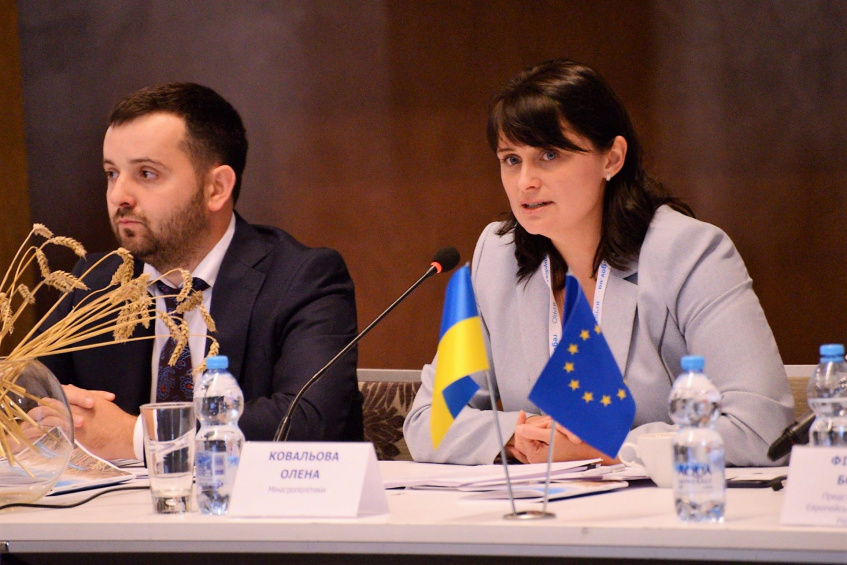
Ukraine is among the top eight producers of grain in the world, accounting for 3% of global production, and the second biggest exporter after the United States. Yet the country is losing millions of dollars a month due to gaps in legislation, inefficiencies in regulatory instruments, and unsuitable infrastructure, according to an analysis of the sector by the EU4Business FORBIZ project in Ukraine.
Ineffective regulation, inadequate transport infrastructure, the lack of mechanisms for ensuring proper storage of grain, and insufficient state support for small producers, are all hindering the development of the industry. Ways of addressing these problems were discussed by representatives of the Ukrainian authorities, business and expert circles on 27 September during a roundtable on the ‘Ukrainian Grain Market: Effective Regulation for World Leadership’, organised in the framework of the FORBIZ Public Dialogue #PRODialog initiative.
Ineffective regulation
The Better Regulatory Delivery Office (BRDO), set up under FORBIZ project, conducted a deep regulatory analysis of the industry and presented it at the round table. "The production of cereals accounts for 4.5% of Ukraine's GDP, the share of grain is 16.7% in total commodity exports. This is every 6th dollar of foreign currency earnings of our country. But in this sector, out of 56 regulatory acts in the grain market, 22 acts, or 40% of the total number, are illegal or irrelevant; 80% of the articles of the law on grain and the grain market require substantial changes,” said Andrey Zablotsky, head of the agricultural sector of BRDO, presenting the results of the study.
“Due to gaps in legislation and inefficiencies in regulatory instruments, business and the country are losing millions of dollars every month.”
Small producers lack access to resources
Out of 32,000 enterprises in the grain market more than 71% are small and medium manufacturers. At the same time, they produce only 17% of gross production of cereals. The main reasons are low yields, poor technical equipment and limited access of SMEs to financial resources and modern technology. The average yield in Ukraine is about 40 c/ha, while in China and Brazil it is 52-56 c/ha, and in the US it stands at 82 c/ha. Thus, the lack of state measures to stimulate SMEs significantly impedes sector development.
Boris Filippov, Attaché on Economic Cooperation, Social and Regional Development of the EU Delegation to Ukraine, said: "Within the framework of the EU-Ukraine Association Agreement, we are helping the Ukrainian Government create a better business climate, in particular through the EU4Business / FORBIZ project. In order to fully realise the potential of Ukraine in the international market, it is extremely important to create more favourable conditions for the business, especially SMEs, by abolishing obsolete norms that are not in line with the interests of producers."
The development of the grain market is hampered by a number of other significant problems. In particular, the lack of effective mechanisms for tracing the quality of grain and ensuring its proper storage, the non-compliance of legislation with EU requirements for the definition of quality and classification of grain, as well as phytosanitary measures.
Poor transport infrastructure
In addition, the profitability of production directly depends on the efficiency of infrastructure and logistics. Restrictions on road transportation and underdevelopment of river infrastructure create a situation where the demand for rail transportation exceeds supply by 2-3 times. These transport delays lead to business losses estimated at $1 million a month.
Funded by the European Union under the EU4Business initiative, the FORBIZ project supports Ukraine’s reform agenda and its economic recovery by proposing a systemic, smart change to a more business-friendly environment with a particular focus on SMEs. The project seeks to steer a shift in policy towards greater recognition of SMEs and the vital role they play in economic recovery, while addressing the challenge of reducing regulatory burden and lessening risk for businesses.
BRDO website http://brdo.com.ua
